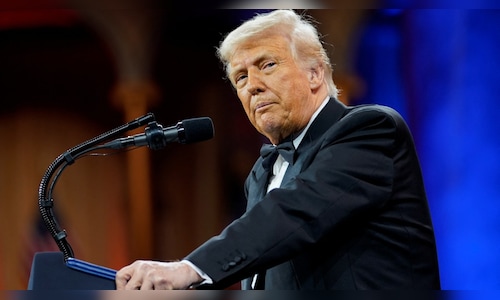The legislation, which narrowly passed the House last month, is confronted by resistance from both moderate and ultra-conservative senators in the Senate, where Trump can only lose three votes.
“With the Senate reconvening today, I urge all of my Republican colleagues in the Senate and House to expedite the process and deliver this Bill to MY DESK before the Fourth of JULY,” Trump posted on Truth Social.
The president conveyed to lawmakers with differing views that he was supportive of their positions.
Senator Thom Tillis of North Carolina, who advocates for increased deficit reduction and opposes cuts to clean energy in the House bill, indicated that he anticipates Senate leaders will provide Trump with a draft containing tax and Medicaid revisions by this weekend. However, he recognized that the process might extend much longer.
Tillis mentioned that Republicans need to consolidate ideas from various senators “into a cohesive plan, hopefully within ten to fifteen days.”
This tight timeline would be necessary to deliver the legislation to Trump by his July 4 deadline, but meeting it would be challenging.
If the Senate approves an amended bill, the House would need to review it again. Any alterations could potentially destabilize the fragile coalition that narrowly supported the measure in that chamber.
Senate Republican leaders plan to make permanent many of the temporary tax cuts featured in the House bill, a decision that would exacerbate the bill’s deficit impact of over $2.5 trillion. However, this would risk alienating fiscal conservatives who are already at odds with party moderates regarding the bill’s cuts to safety net programs.
The most significant of these cuts pertains to Medicaid, with projections indicating that approximately 7.7 million people could lose health care coverage due to changes in eligibility requirements.
Senator Josh Hawley of Missouri stated in a mid-afternoon social media update that he had “just had a great talk” with the president concerning the legislation, agreeing that there would be no cuts to Medicaid benefits.
Hawley later expressed his support for the House bill’s work requirements and efforts to combat fraud but voiced opposition to changes regarding the Medicaid provider tax and cost sharing. The House legislation aims to restrict a practice where states tax hospitals and other Medicaid providers to enhance their federal reimbursement rates, which critics label as an accounting gimmick. It also introduces new copays for Medicaid beneficiaries.
The senator added that the president clearly communicated his preference against making deeper cuts to Medicaid than those proposed in the House bill, which some Senate Republicans are calling for.
Trump also conversed with Senator Ron Johnson of Wisconsin, a GOP holdout advocating for cutting the budget from over $7 trillion to a range between $5.5 trillion to $6.5 trillion. Johnson noted that Trump was receptive to his suggestions. He stated he would engage with Trump’s economic team to assess the figures and would consider a proposal similar to the House bill with commitments for future legislation that enacts more substantial cuts. “I want to work with the president,” Johnson remarked.
Trump met with Senate Majority Leader John Thune on Monday, discussing a variety of topics, including “a lot about the big beautiful bill.”



